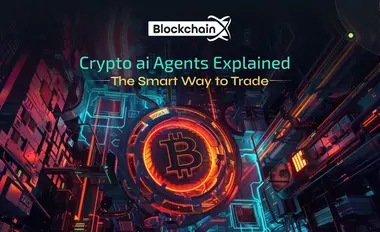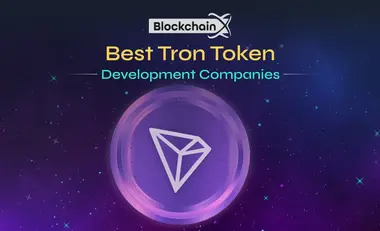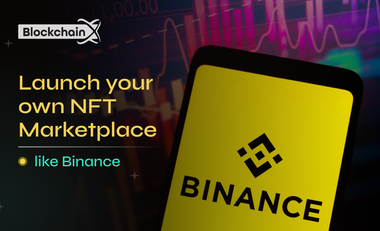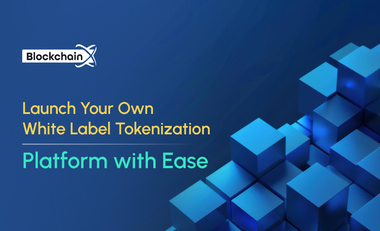
Implementations of Rust For Blockchain Networks
Over the years, there is a massive evolution happening in the field of technology with newness spreading all over. There are new coding languages, methods, and technicalities coming in to shoot betterment targeting efficiency. The shift obviously marks the significant part of greeting the best of digitalization and shaking hands with an independent society with free will to act and decide. This is where Decentralization meets the new Software innovation, called Rust for blockchain is a bonus to knock down the difficulties and meet the diplomatics to be well managed.
Rust has been a part of many major projects, supporting NASA’s core Flight systems, this backend language has proven to produce success in varied compliments. In terms of developing safer, concurrent, and highly perforable solutions. Rust has taken a leap with blockchain also. And to explore them, don't skim, scroll by each word.
Rust - Redefining Concurrent Memory Safety
Rust Language is a compiled, comprehensive system type with an ownership concept performing incredibly quickly and memory efficiently. This makes it easy for developers to compile and debug on time which helps in powering up the performances of critical services, safeguarding memory, and reducing time.
Apart from this, documentation is smooth and Rust makes it easy to use the compiler. Its integrated package managers and multi editor are all premium tool packages with the capabilities to inspect and auto-compile.
The most fascinating thing about Rust is its ability to pre-configure as it secures, like other programming languages including JavaScript, Ruby, Python, etc. Rust at the same time is flawless as it's not possible to write incorrect parallel codes. It's also more powerful than C and C++, and represents many different programming paradigms more precisely and promptly.
Multiple Use Cases Of Rust For Blockchain
Rust language is used in multiple spaces and has varied use cases in the world of development. Similarly, there is coding in all varied spectrums based on requirements. Here Rust is most frequently considered a multi-functioning platform with high-performance scenarios that don’t give up on security and safety. Its different use cases include…
Browser development
Blockchain erection
Operating System
Cybersecurity productions
These sectors have proven to be empowered by implementing Rust while resorting to C and C++ is also considered needed. In the case of Embedded Developments, Engineers have to vitalize on old-school norms to hit better performance as the memory and the speed of the CPU are luxury.
Meanwhile developing backend systems using JavaScript, Java, or C+ are defined as the best tool. They contribute to achieving the best, while actively sacrificing the performance of the app to breed quicker iterations and shorter development time. However, the apps built on Rust have proven to make better front-end web apps.
Blockchain Engineers Into Learning Rust
The information is distributed and shared publicly through the internet in a blockchain network instead of being copied or duplicated. The data are not shared in the central location but instead distributed in order to accelerate items, assets, support within the organization’s infrastructural needs and setups, through technology that ensure safety, security, and efficiency.
Thus, the major purpose of Blockchain Engineers today to show their interest to shift to Rust for blockchain and implementing other digital solutions for organizations is for its memory safe box. The ability to perform efficiently, meticulously, and swiftly is also like an add-on for engineers to choose Rust for Blockchain application development.
Rust programming language is reliable and it's insanely fast in action at the same time it also minimizes the memory bug in the process of compiling. Apart from being easy to learn, the Rust curve is supremely intact to understand and navigate than other programming languages. With a wider team using Rust, it's easy to focus more time and energy on implementing the logic of the program. Eventually, Rust is a compiled programming language; it's furthermore easy to bring in binary executable files that are compatible with another language.
Unleash The Various Projects Working on Rust Blockchain
Rust excels in multiplatform development, speed, quality, safety, etc., and Blockchain developers focus on this language for their backend support. High-profile projects like Zcash, and MobileCoin, are impressed with Rust in Blockchain and are into its implementations.
Solana

The project started in November 2017, and all they focused on from day one was building a blockchain from the ground to scale up. And in a few years, it has had multiple successful projects on it with a strong community. Solana and Polkadot are competing with Ethereum to evolve in the web3 space. In order to achieve this, the engineers come up with new implementations. Rust is one prime choice for its ability to process and secure data easily and quickly. In terms of achieving higher efficiency, the language features were also restricted. Moreover, this increased the transaction speed.
Polkadot

The London-based organization that envisions identity and data ownS a tooth being an enterprise solution facilitator, makes building, deploying, and running distributed ledger at ease. Vitalising Rust gives the application developers and administration more control and helps in access flexibility with great security for the network. Guido Van Rossum’s creation was on purpose to facilitate prototyping. And later they decided to rewrite n Rust from Python to enable better shipment.
This avoided low-quality code to pass through the compiler and strengthened the system. Rust gave high quality and strict language to compile ownership via the web, Polkadot is safe and secured from a central authority. While the team focuses on connecting private and consortium chains, public, permissionless networks, oracles, and everything that the future technology demands together. For this motive, Rust has been very helpful. The team exposed their highlights, and foundation and they are to get started in order to expose Polkadot accessible to a wider range of developers.
Hyperledger Sawtooth

Sawtooth being an enterprise solution facilitator, makes building, deploying, and running distributed ledger at ease. Vitalising Rust gives the application developers and administration more control and helps in access flexibility with great security for the network. Guido Van Rossum’s creation, a project based out of San Francisco was on purpose to facilitate prototyping. And later they decided to rewrite Rust from Python to enable better shipment. This avoided low-quality code to pass through the compiler and strengthened the system. Rust gave high-quality and strict language to compile.
Elrond

The fastest and most efficient shared blockchain network with internet scaling for smart contract developers and enterprises, Elrond is one of the best choices. Its variety of benefits contributes to the best for the Web3 community, and industries needing high security, all at a lower fee. Eventually, it is faster than other blockchain networks in the legacy processing of 15,000TPS.
To add on, Elrond facilitates cross-chain interoperability that is designed to scale at ease. To do this, a Novel sharding mechanism and validator structure make it possible. The Native EGLD token is the primary asset that can interact with Elrond dApps, while the essential part is the secure proof of stake (SPOS) consensus mechanism with triple node architecture including Validators, Observers, and Fishermen.
Near Protocol

It is one of the smart contracts and community-driven blockchain networks used for storage purposes. Through the sharding mechanism, the data are distributed into localized segments that reduce edge time pressure, minimize transaction fees, increase the rate of the transaction, and much more. It is also one of the fastest blockchain networks that can process up to 100,000 TPS, proving it to be a well-equipped ecosystem with the ability to scale high and meet global demand in the web3 technologies.
To add the native token, NEAR interacts with dApps through the Near Protocol Ecosystem where the holders can participate through the Proof-of-stake consensus mechanism. This justifies that the NEAR protocol removes the barriers to the adoption of massive web3 and its entries. Its Ethereum bridge is its support panel helping to swap assets between tokens. And its Aurora - EVM compatible Layer 2 scaling solution helps in deploying smart contracts on NEAR at a minimal fee with Ethereum Tooling.
Why implement Rust For Blockchain?
With blockchain on the scene, the perks of decentralization have put itself into everything, almost everywhere. From supply chain to digital voting, and asset management - the technology is free to integrate with every aspect of life. Its ability to merge has encouraged many businesses to adopt them in their software, applications, etc., to be future compatible.
With the emerging blockchain protocols, Rust enables free abstraction that by default contributes to better development and deployment principles. As Rust for blockchain is interoperable with C and C++; it's a user-friendly programming language. Its interoperability, memory efficiency, and increased dependability, in addition to the lack of trash collectors. This eliminates the runtime indeterminism in the language. Therefore all these abilities make Rust a perfect choice for blockchain development.
Develop Your Application On Rust In Blockchain
With the progress of decentralization, today almost every business and niche have blockchain networks. Amongst varied options, you can still choose your endeavors to excel in the market with the trend. In meantime, if you desire to develop your application on Rust in blockchain, our experts can help you develop it. Our blockchain development services will for sure be useful and help you achieve what you desire.
Rust in blockchain, has good traction and businesses also are adopting it to betterment it. For a memory savior and to access quickly on time eliminating bugs at compilations, we can help you get all that in your app with Rust blockchain development solutions
Why choose Rust for Blockchain?

Performance: it's fast, memory efficient, and capable of performing a crucial task. Integrate easily with other languages.
Reliability: system and ownership model guarantees memory safety, and eliminates bugs at compile time.
Productivity: it has advanced tools, a friendly compiler, a great documenter, smart multi-editor support, and much more.
Rust can build

Command lines
Web assemble
Networking
Embedded
blockchain in association with Rust
Solana
Polkadot
Sawtooth
Elrond
Near protocol












